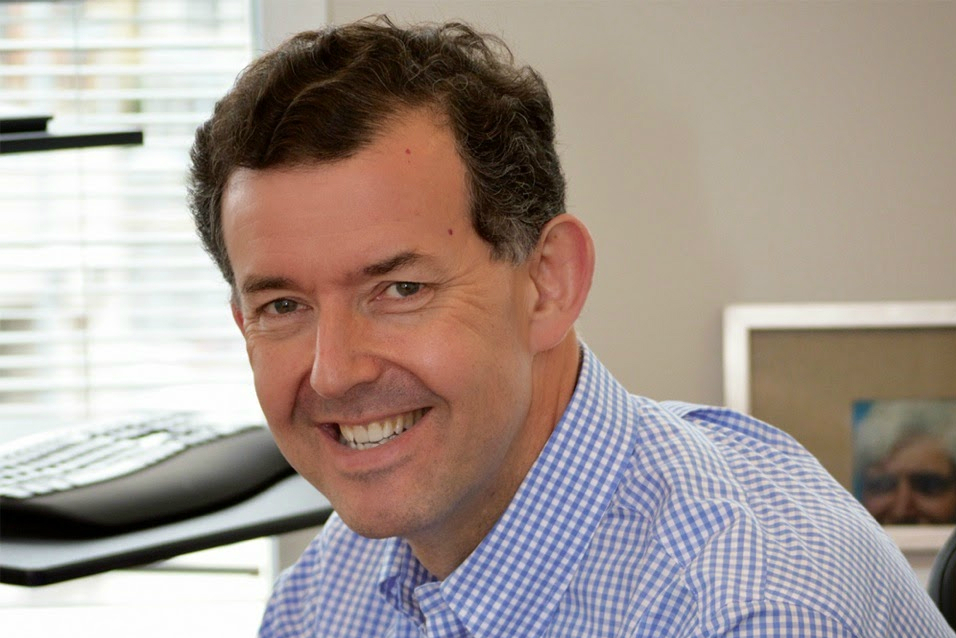Andrew Watt is out as president and CEO of the Association of Fundraising Professionals (AFP), just three weeks after a reorganization that reduced 25 percent of the staff and aimed to streamline operations and improve member services.
AFP General Counsel Jason Lee was appointed interim president and CEO.
Watt told The NonProfit Times that his leaving “can’t come as any shock” although the abrupt exit did surprise some observers in the fundraising community. He said his strong suit is public policy, advocacy and “the public space.” AFP’s next leader will be someone who is very focused on financial management, he said.
This time of year is always financially tight, with bills from the recent international conference coming due and deposits needed for the 2017 event, said Morgan Roth, AFP’s vice president of strategic communications. She said it is a little more extreme this year due to currency fluctuations. Roth said the organization is “on budget” for membership revenue and that there is a slight uptick in membership to more than 33,000.
“For all of us, it’s a day of mixed emotion and a sense of excitement and hope for AFP,” said Board Chair Patrick J. Feeley, MBA, CFRE. He called the evolution sudden. “We are not assembling a search committee on Friday of this week … we envision Jason being in this role for a solid 12 months if not more.”
Revenue generation will be an important part of the skills for the next leaders, he said. Feeley is AFP chair through 2016. He serves as executive vice president and chief development officer at Caron Treatment Centers in Wernersville, Pa.
The departure today came during a regularly scheduled board meeting. Feeley said there was a “confluence of coming to the end of a season into the summer, a great opportunity for a heart-to-heart.” Feeley said that nothing had been decided prior to that personal meeting.
Lee said he was approached after conversations leading up to possibly other opportunities for Watt. “Today was the tipping point, in both his mind and the board’s mind that it was a good time to make the change,” he said. “The reason I took on the role is that I care very deeply about the staff and the relationship with the board, executive committee and its partners.” He said he’s well positioned to provide a fairly seamless transition as they work on both the strategic plan and start looking at revenue streams. “As long as the AFP keeps me in this position, I’m happy to fill it.”
Headquartered in Arlington, Va., AFP employed 41 full and part-time employees in the U.S. and Mexico before 10 positions were cut last month: seven staff members from the association, two from AFP’s foundation and one from its Mexico office. Cuts were concentrated around those handling data input and transactional activities, Roth said at the time.
The cuts in May came following a nine-month process during which AFP evaluated its brand, brand equity and the relevance of its mission in today’s climate. Responses from key stakeholders including donors, volunteers, members and lapsed members depicted AFP as too big, too slow and too gray to pivot with the changes in the field.
Roth at that time estimated that hundreds of thousands of dollars would be saved by the staff reduction, declining to give a hard figure due to the fluidity of expenses such as benefits. Those dollars will be divided into pure savings for the organization and reinvestment. Reinvestment, according to Roth, will be focused on AFP’s four pillars: the ability to jump on and create opportunities, education, inclusion and influence, and policy and advocacy.
AFP reported revenue of just under $11 million in its most recent available Form 990, which is for 2014. The total included $9.2 million through program revenue comprised, in large part, of membership dues, $5.8 million, and AFP’s annual international conference, $2.1 million. The reorganization is not anticipated to have any impact on the conference, according to Roth.
Watt had been president and CEO since 2011, succeeding Paulette Maehara. He first joined AFP in 2006 as vice president for international development before being promoted to chief programs officer in 2008. Watt previously served as director of policy and then deputy chief executive director of the Institute of Fundraising in the United Kingdom.
As president and CEO, Watt earned total compensation of $359,115. He is credited with expanding AFP’s international reach and impact, as well as cultivating expanded professional development and ethics offerings to fundraisers in Asia, Africa, Europe and Latin America.
“Twenty-five years of service to the fundraising community – the last 10 with AFP – has been profoundly fulfilling,” Watt said. “Reality is the thing that excites me about Washington, D.C. and the U.S. is the ability to effect change. Whatever I do next, it will be more focused on mission,” he said.
“Beyond AFP there is no other role in fundraising community I wanted,” he said, because of the advocacy element of the job and association.
This is not the first time that AFP has been in a post-conference cash crunch. The organization let go six of its 43-member staff after the 2009 conference, saving about $700,000 on top of $1 million otherwise cut from the budget. At the time, officials said decisions on what positions were cut were based on an assessment of their ability to consolidate job responsibilities of those being laid off and to cover the work with existing staff.
